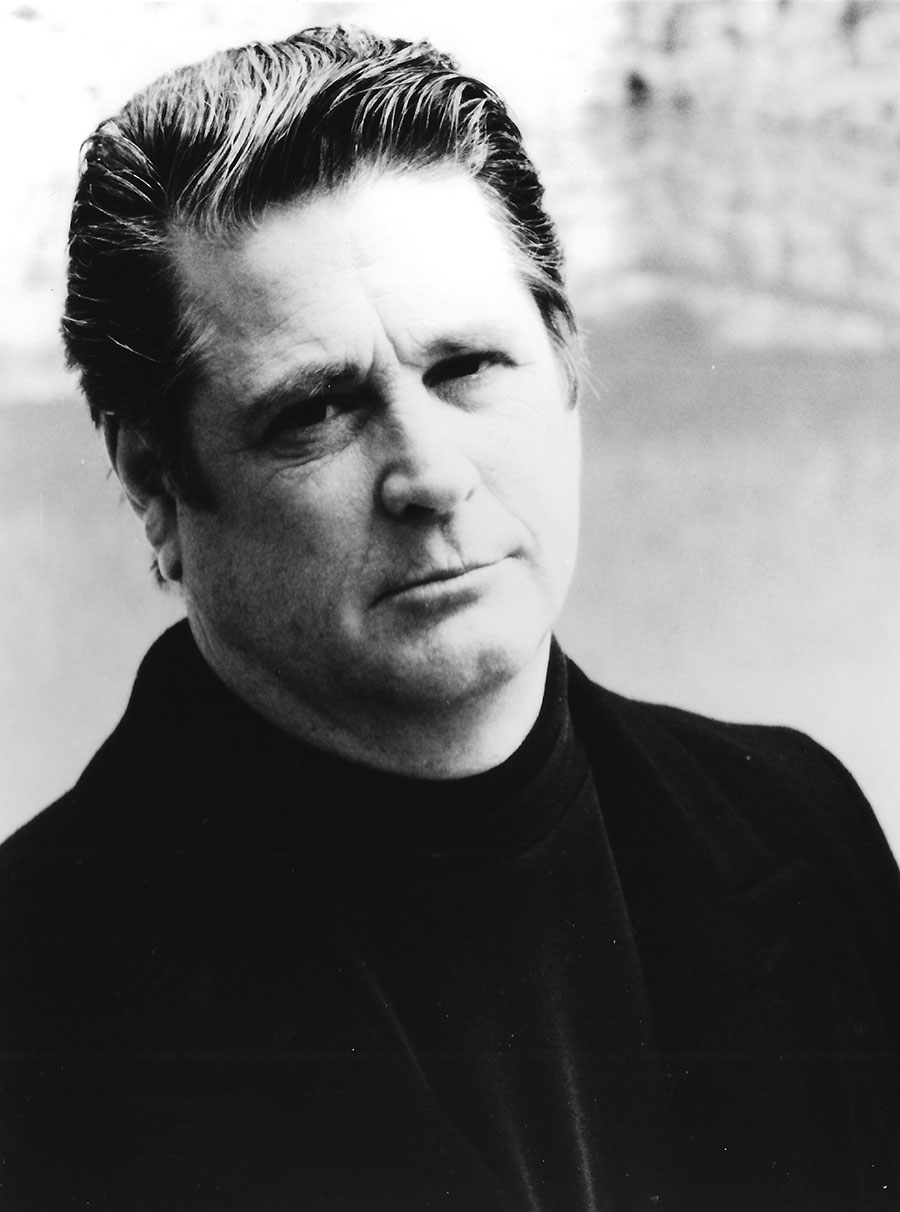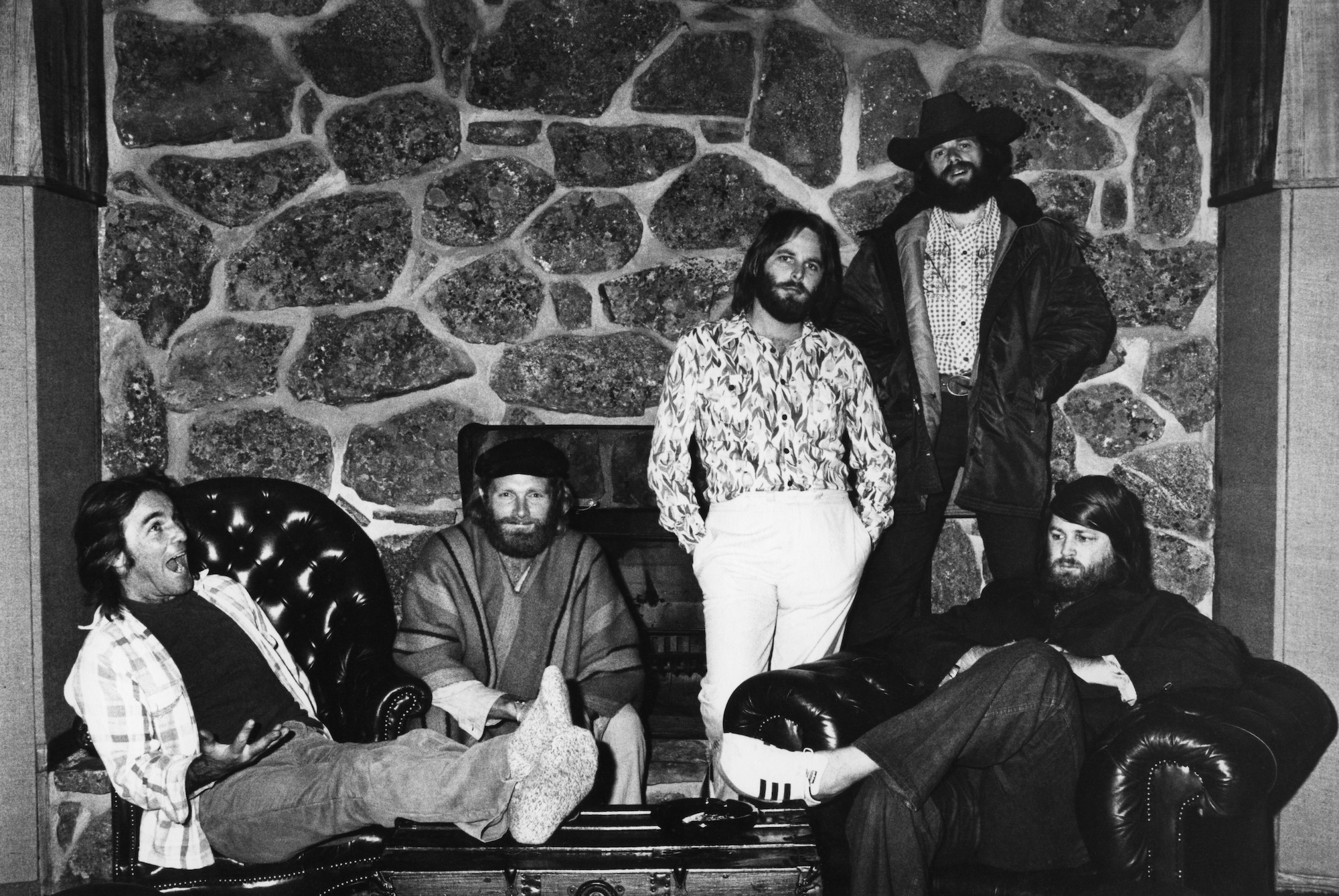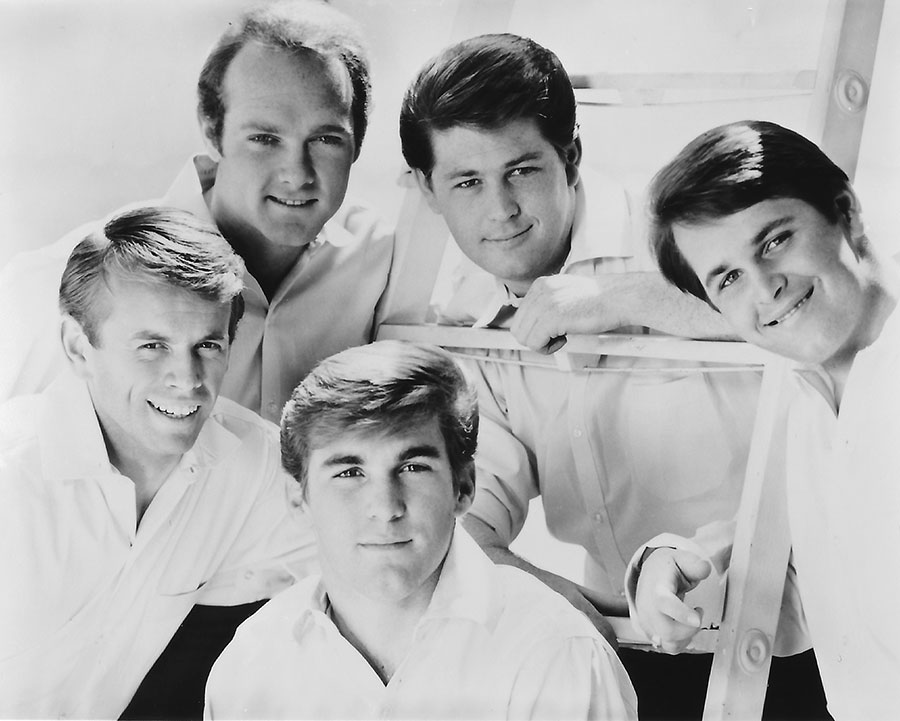Brian Wilson, the visionary heart and soul of the Beach Boys who struggled with mental illness and drug dependency for much of his life, died on June 11, 2025, at 82.
In November 1991, one of pop music’s most famously troubled recluses sat at a piano in an empty ballroom at Denver’s Brown Palace and fidgeted. “If I could have a wife and kids that loved me, an accounting job that I liked…I would still choose the life I’ve had, the emotional pain. My art wouldn’t have been brought out if I’d had a happy childhood.”
Wilson’s life had seldom been simple. He was the writer, producer and singer behind the Beach Boys, and his ambitious Pet Sounds album was a landmark in the history of pop music production. Yet he’d had a long struggle between the heavy burden of genius and mental problems. In his autobiography Wouldn’t It Be Nice, Wilson, then 49, told the truth about his schizophrenia, his drug addiction, his alcoholism and bizarre eating habits. On a book tour, Wilson was trim and drug-free, an eager-to-please gentle soul, but it was taking a monumental effort—he’d paid a terrible toll on the road back. Coherent but fragile, he often asked people to repeat simple conversation that he didn’t understand. He politely asked bystanders to fetch two diet Cokes with no ice, chugging them with trembling hands upon delivery.
Wilson’s book described his father Murry, a failed songwriter and the Beach Boys’ manager in the early days, as a viciously abusive parent. Murry’s violent mistreatment left his eldest son with permanent psychological scars and a predilection for substance abuse. “He made me crap on a newspaper. He pulled out his glass eye and made me look in the empty socket,” Wilson reflected. “He once flogged me with a two-by-four—it caused deafness in my right ear. He also purposely dropped a motorboat on my hand. He was crazy.”
The Beach Boys were thrust into the spotlight before Wilson was 20, and his musical talent outgrew his social abilities. He was credited with pioneering the California sound—that is, surf music—that helped define American rock in the early ’60s. He stopped performing with the Beach Boys while continuing to write and produce their songs.
Then out of nowhere, he challenged the Beatles for creative supremacy. He heard their groundbreaking album Rubber Soul and was moved to compose something more startlingly imaginative than songs about surfing, cars and girls. Containing such classics as “Wouldn’t It Be Nice,” “God Only Knows” and “Caroline, No,” Pet Sounds—an exposition of his own arduous transition from teenager to adult—earned Wilson modern-day studio wizard status in the rock world. The Beatles, in turn, wrote Sgt. Pepper’s Lonely Hearts Club Band.
But when it hit shelves in 1966, the record was initially ignored, selling poorly compared with previous Beach Boys releases. Record company executives, his father and the other Beach Boys wanted Wilson to get back to the surfing-cars-and-girls formula. After the sessions for Smile, the storied follow-up to Pet Sounds, were aborted, Wilson faded away in a series of withdrawals and breakdowns. He began to draw inward, physically intimidated and incapable of asserting himself. He drank heavily and, with the advent of the drug culture, began using “pot, LSD, uppers, downers, coke.” It precipitated his descent into a living nightmare that almost cost him his life. Widespread accounts of his iconoclastic behavior persisted for decades. He became infamous for having a sandbox in his home, and he stopped washing himself, staying in bed for months at a time.
“I was stoned on such a broad scale, my head was so messed up,” he recalled with a nervous laugh. “I hardly had a chance to get music out.”
After he nearly overdosed on alcohol, cocaine and pills in the early ’80s, Wilson spent more than a decade in the “care” of maverick therapist Eugene Landy. It had been rumored that Wilson was brainwashed by Landy, and the relationship had been unusual. Landy monitored Wilson 24 hours a day, then went on to become a business partner and executive producer of Wilson’s 1988 solo album.
Wouldn’t It Be Nice described Wilson as his own man, cured of physical and mental dependencies and free of undue influence. But against his wishes, members of his family—including his mother, his daughter and his brother Carl—had asked Santa Monica Superior Court to declare Wilson incompetent and appoint a conservator to handle his affairs. They alleged that Landy had exercised unethical and avaricious control over Wilson. All Wilson understood is that people were trying to keep away the person who had done him the most good. “My family has misread the situation. Gene’s my friend, and they’ve really managed to cut him down. Over a million dollars in attorney fees in the last year! I talked to Carl two weeks ago, and he doesn’t want to put me through a trial. We’re trying to settle before it goes to court this month.”
Wilson offered a peek into his musical mind playing a stock shuffle rhythm on the piano and a verse of Bobby Vee’s 1960 hit “Devil or Angel” when asked about his demons. He thought re-releasing his classic “Caroline, No” would be “like a 10-milligram Valium for the whole music industry.”
And he was convinced someone should cover Elton John’s “Daniel.” When informed that a “Daniel” remake had just been released—by his daughters Carnie and Wendy of Wilson Phillips (on the Elton John tribute album Two Rooms)—he asked to hear it. He rubbed his eyes and face as he listened, nervously tapping his foot. “That’s enough,” he said two-thirds of the way through. “They’re good kids—they work hard and fast. I was a bad dad. I feel very guilty about it. It doesn’t add up to a spectacular reunion. That would take a lot of courage.” Ironically, the preceding track on the album was “Crocodile Rock”—as interpreted by the Beach Boys. Wilson was asked if he wanted to hear that track as well. His expression was vacant. “No.”
Landy’s questionable treatment eventually led to the loss of his license. Wilson slowly pulled himself out of his tailspin. In 1998, while something called Mike Love of the Beach Boys and His California Beach Band was on a bogus-oldies tour, Wilson recorded his first all-new album in a decade. Imagination wasn’t a classic, but it was above-average pop music. There were hints of the gorgeous production, vital hooks and subtle arrangements of Pet Sounds, and Wilson’s voice was strong on the stunning multitracked harmonies.
“It’s an adventure to go into the studio in the first place, and to be able to sing what you feel is a great honor, too,” Wilson said. The best song was the perky “Your Imagination.” “It’s trying to express the fact that your imagination can get away from you,” Wilson explained, “that you don’t have to really let it.” Sadly, no amount of imagination would help his summer-means-fun tune fit into any current radio format. Still, a self-confident Wilson said, “I’m ready for success—I’m ready to get somewhere with it.”
By 2000, Wilson had emerged triumphant, recently inducted into the Songwriter’s Hall of Fame and bringing his much-anticipated Pet Sounds Symphony tour to the country. He came off as a fragile survivor, responding in short, clipped sentences. But his uneasiness somehow took on a warmth, and he seemed genuinely earnest when he talked about his return to the stage, which began with a handful of shows the previous year.
“I make little decisions in my life. I decided, ‘Well, I’ve sat on my ass long enough.’ I wanted to go out on the road and try something new,” Wilson said. “And so far, I’ve been getting standing ovations wherever we go. I can’t believe it. I feel much more comfortable onstage now. At first, it’s a little scary, and then the nervousness goes away. I have a much better band behind me than the Beach Boys were. And I wanted people to know that I could still hold a note, still sing.”
The summer tour was named for the Beach Boys’ influential aural masterpiece. Pet Sounds hadn’t been certified platinum until spring 2000, but the complex magnum opus had been quoted by the likes of Paul McCartney as perhaps the 20th century’s greatest expression of pop artistry, and dozens of bands had pledged allegiance to the deceptively dense work. It made “best albums of all time” lists as a matter of course. “I miss how inspired everybody was then, how great music was,” Wilson said. “These days it’s all gone away.”
Wilson’s life was less eccentric. He credited his second wife, Melinda, for getting him further out of his shell. “It’s given me a new lease on life. I can go on tour and have fun. I take it one concert at a time.” But no one held out hopes for a Beach Boys reunion. The group was originally made up of Wilson and his two brothers—Dennis (who drowned in 1983) and Carl (who died of lung cancer in 1998)—and cousin Mike Love and friend Al Jardine. With lots of auxiliary members, Love had continued to milk the band’s legacy as an exercise in nostalgia at baseball games and fireworks displays across America every summer.
“After Carl died, it kind of messed us all up,” Wilson said. “He was our peacemaker.”




